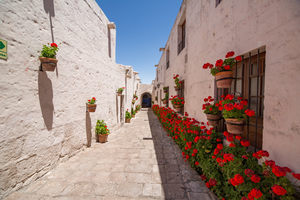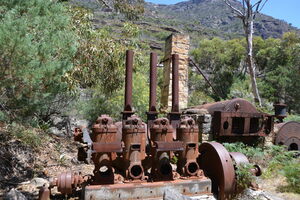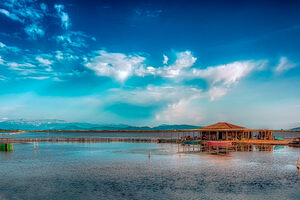Monasterio de Santa Catalina in Arequipa, Peru

On September 10, 1579, Doña María de Guzmán, a young, beautiful, and rich widow founded this monastery which only accepted young women from upper-class Spanish families.
At the time, it was a tradition for the second daughter of a wealthy family to enter a life of service to the church. Life was hard and it was advantageous to have a family member regularly pray for her relatives’ welfare. Elder sons and daughters were normally married off to create ties with other powerful families and to provide for parents in their old age.
A family paid the equivalent of $150,000 for their daughter’s residency at the monastery. They were also expected to provide furnishings and personal items. Novices usually took two family servants to live with them, often a nanny and one of the family cooks. Each apartment included a kitchen, bedroom, and living area. There were also gardens and courtyards to enjoy on the grounds.
After learning the requisite prayers, a nun’s other religious duties involved sewing elaborate vestments for priests, bishops, cardinals, and religious statues. Some of this handiwork is on display at the monastery. At one time, about 150 nuns lived at the monastery, supported by almost 300 servants. The biggest downside to this cloistered life was that a nun could never leave. No man, except the bishop, ever spoke to the women face-to-face. Family members could visit, but they spoke through a darkened set of wooden grates.
In 1871, Pope Pius IX decreed that the nuns had to move out of private rooms and into dorms. They also had to send their servants away. By the 1970s, the nuns had moved into modern apartments. While there are still about 30 nuns left at the monastery, they live in a separate area from visitors and are free to leave the grounds to run errands.





